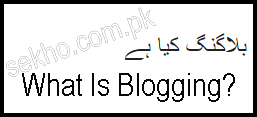What Do You Mean By Blogging?
Blogging has become an integral part of the digital world, allowing individuals and businesses to share ideas, information, and experiences with a global audience. Whether used for personal expression, education, or marketing, blogging plays a crucial role in online communication. But what exactly does blogging mean? This article explores the concept of blogging, its history, benefits, and how you can start your own blog.
Definition of Blogging
Blogging refers to the practice of creating and publishing content on the internet in a journal-like format. A blog is a website or a section of a website that features regularly updated content, known as blog posts. These posts are often written in an informal or conversational style and may include text, images, videos, and links to other relevant content.
History of Blogging
Blogging originated in the late 1990s when individuals began maintaining online diaries, known as weblogs. The term “blog” was later derived from “weblog,” coined by Jorn Barger in 1997. By the early 2000s, platforms like Blogger and WordPress made blogging more accessible, leading to its rapid growth. Today, blogs exist in various formats, including personal blogs, business blogs, and niche-specific blogs covering topics such as health, finance, and technology.
Types of Blogs
There are several types of blogs catering to different purposes and audiences:
- Personal Blogs – Individuals share personal experiences, opinions, and daily life updates.
- Business Blogs – Companies use blogs to promote their products, provide industry insights, and engage with customers.
- Niche Blogs – These focus on specific topics like travel, food, fashion, or fitness.
- News Blogs – Cover current events, political updates, and trending news.
- Affiliate Blogs – Bloggers earn money by promoting products and services through affiliate marketing.
- Educational Blogs – Provide tutorials, how-to guides, and learning resources.
Benefits of Blogging
Blogging offers numerous advantages, whether for individuals or businesses:
- Personal Growth: Writing regularly enhances creativity and communication skills.
- Knowledge Sharing: Bloggers can educate others on specialized topics.
- Monetization Opportunities: Successful blogs generate income through ads, sponsored content, and affiliate marketing.
- Brand Awareness: Businesses use blogs to strengthen their brand and attract customers.
- Community Engagement: Blogs create a space for discussions and interactions with readers.
How to Start a Blog
If you’re interested in starting a blog, follow these steps:
- Choose a Niche – Select a topic you are passionate about.
- Pick a Blogging Platform – Popular options include WordPress, Blogger, and Medium.
- Get a Domain Name and Hosting – If creating a self-hosted blog, purchase a domain name and web hosting.
- Design Your Blog – Customize the layout and theme to make it visually appealing.
- Create Quality Content – Write informative and engaging posts consistently.
- Promote Your Blog – Use social media, SEO, and email marketing to attract readers.
- Monetize Your Blog – Explore ways to earn from your blog through ads, sponsorships, and affiliate marketing. To succeed in blogging, it’s important to create engaging content, and the first step is to build a free website easily with user-friendly tools.
Is Blogging A Good Career?
Yes, blogging can be a good career if you are passionate, consistent, and strategic. It offers flexibility, creative freedom, and potential income through ads, sponsorships, affiliate marketing, and digital products. However, success takes time, requiring SEO knowledge, quality content, and audience engagement. While competition is high, those who build a niche and monetize effectively can earn a sustainable income.
Blogging is a powerful tool for self-expression, education, and business growth. With the right approach, anyone can start and maintain a successful blog. Whether you aim to share your experiences, build an online presence, or earn money, blogging provides endless opportunities in the digital landscape.

